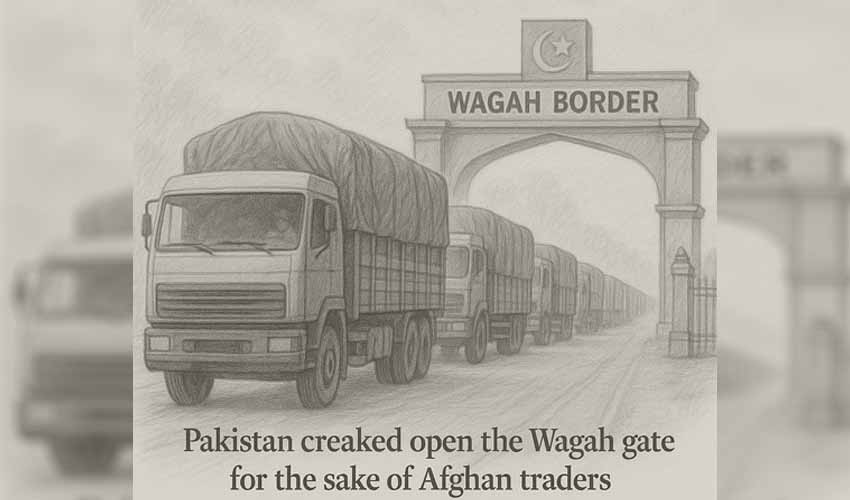Allowing Afghan trucks to cross into India seems the right move for now. The last thing Pakistan wants in the region is to add to the mess already created by India. The transit vehicles were already stuck in Pakistan, so keeping them here was not prudent. However, nothing about this gesture signals a thaw between the two nuclear-armed states.
Pakistan suspended all trade with India, including that under the Afghanistan Pakistan Transit Trade Agreement, via the Wagah border in response to New Delhi’s aggressive stance and threats following the unfortunate Pahalgam false flag operation. Subsequently, the 40-50 trucks that normally crossed into India daily began piling up near the border, making Afghan authorities and traders anxious.
However, on the request of Kabul, around 150 vehicles carrying dried fruits, apples, and other goods were permitted to cross the border. The move was expected because with things going south with India, Pakistan does not need a second headache, one from the western border. Now, Islamabad intends to keep this transit window open for Afghan trucks that entered Pakistan before April 25 so that neither the fruits nor Islamabad’s relations with Kabul rot on the vine.
Contrary to common belief, Wagah is not just a trade route but also a pressure point. Its weeklong suspension has already caused the prices of dried fruits to rise by up to 25 percent in India. This should serve as a wake-up call and a reminder to New Delhi that nothing moves on this map, not even figs or apples, unless Islamabad allows it
Actual trade between Pakistan and India has been dead since the 2019 Pulwama incident. It was buried deeper with the abrogation of Article 370 that guaranteed the region’s special status. The route had remained operational until now just to facilitate Afghan traders, who export goods worth half a billion dollars to India via this channel.
Contrary to common belief, Wagah is not just a trade route but also a pressure point. Its weeklong suspension has already caused the prices of dried fruits to rise by up to 25 percent in India. This should serve as a wake-up call and a reminder to New Delhi that nothing moves on this map, not even figs or apples, unless Islamabad allows it. Pakistan creaked open the Wagah gate for the sake of its Afghan brethren, not for the hostile forces on the other side threatening regional peace.
It also seems odd that those who cannot even tell a trade route from a Track II channel are suddenly talking about “thaw” and “hope”. If this region operated on hope, issues between the two countries would have been resolved decades ago. However, if someone wants to read it as a breadcrumb of optimism, it is there.
Pakistan does recognize that war is madness, which is why it has repeatedly conveyed clear messages to India, urging its return to reason. However, with New Delhi dragging its feet on peace and poking every possible nerve, Islamabad has no choice but to stay alert, not aggressive. If India wants a de-escalation, it knows what to do. Until then, even the figs would not move without a nod from this side of the map.


























